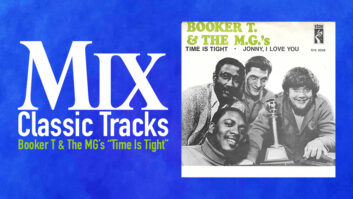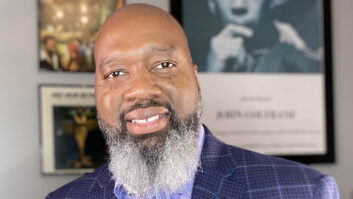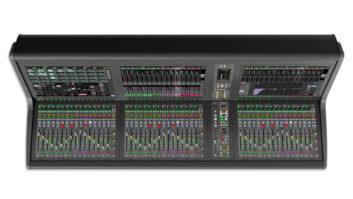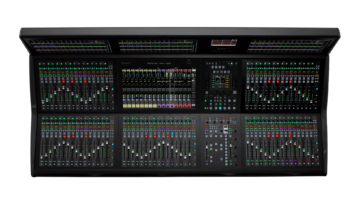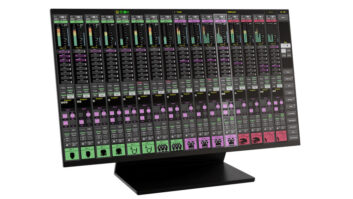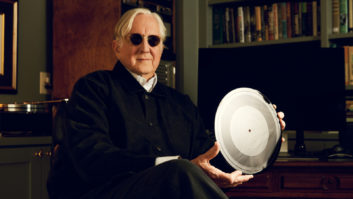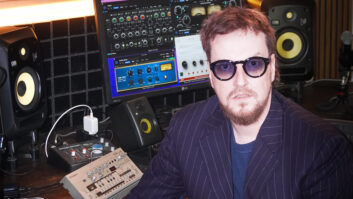
New York, NY (July 23, 2020)—Ron Gilmore Jr. can do it all. He’s produced and/or played keys on numerous Gold and Platinum-certified J. Cole records, including providing piano work on the Platinum-selling single “Crooked Smile,” which helped catapult Cole into superstardom. He’s worked on at least one project with every artist on Cole’s Dreamville record label, while also touring the world as Cole’s keyboardist for the better part of a decade. With all that going on, Gilmore still found time to release two albums—2016’s The Maturation of Little Ron and 2019’s Talking—and promote the latest one by touring the United States with breakout R&B artist Ari Lennox in 2019.
The Nashville, TN, native moved to New York City in 2010 and first linked up with Cole around that time—before the artist, Jay-Z’s first signee to Roc Nation, even had a hit. Gilmore fondly remembers the music magic he made in those early days before the money came: “That was the time when everybody’s money wasn’t up, as opposed to now where I’ll buy whatever gear I want. I just purchased a [Neumann] U87 microphone, but back then we couldn’t do that. We used to steal all kinds of VST plug-ins. Even the Logic I had wasn’t a real version of Logic. Everything that we had was bootleg.”

While those days are behind him now, working with Cole has taught him a number of valuable lessons that have served him well for more than a decade. “Sometimes it’s good to know your role, and function in that. Don’t try to be everything,” he shared. “That’s what Cole really liked about me. Even though I had all of these talents, when I first started working with him, I was just being a keyboard player. I just fit in the role I was given and that helped the whole operation,” Gilmore said.
Another lesson learned was to keep an open mind. As a multi-instrumentalist, he was staunchly against virtual instruments, dissatisfied with what he felt were weak-sounding digital replacements—that is, until he found the right ones to blend the digital with the authentic. Spectrasonics’ Trilian bass virtual instrument helped Gilmore expand from piano-based production to guitar-based production, and “allowed me to mimic bass and guitar sounds enough to sound real. The manipulation of the sound is what makes that possible.”
Other sounds helped shape an album that changed J. Cole’s entire career. “I was using these programs [like Audiobro’s] LA Scoring Strings and [Native Instruments’] Session Strings for the demo versions of all the strings I wanted on Born Sinner. We ended up recording it with real strings—the music made it on the album, but not the actual sounds.”
As a creative, he’s always open to experimentation, but Gilmore is also a traditionalist at heart and is immensely loyal to the equipment that has taken him from Nashville to the Grammys. No single instrument has received more unwavering dedication from him than the Nord Stage 1 compact 73-key stage keyboard. He carried it on his back throughout New York City when he landed in the metropolis in 2007, used it at least once on every song he touched on Ari Lennox’s 2019 debut album, Shea Butter Baby, and performed with it on stages around the world.
“I loved it so much. I remember leaving one in a [taxi] cab and it was gone. I went on tour with Bas on the Too High to Riot Tour [in 2016] and I bought another one in France. It was more money, but the keyboard was so paramount in my live show, my recording and every facet of my musical journey, I had to have it.”
How Hip-Hop Stars Are Recording During the Pandemic
While Gilmore has worked with every Dreamville artist multiple times, there’s no question that he has the best musical chemistry with one of Dreamville’s first-ever artists, Bas, who was nominated earlier this year for a Best Rap Performance Grammy. Gilmore appraises their connection as closer than brotherhood, considering Bas “an extension of what I would like to be as an artist,” and adding that “as a producer, I’m an extension of the music Bas wanted to make.”
The producer/artist bond extends beyond the studio and, at times, consciousness itself. “We popped acid and stayed up all night working on the ‘Ricochet’ track,” Gilmore said. “To be frank, our relationship was traveling the world, making fire-ass music, and then going to the crib on acid or whatever and seeing how much we can open ourselves up.”
You may not always see Gilmore’s talent, but it’s always ready. He’s an artist, producer and instrumentalist all at once because each facet of his creativity informs the other. He doesn’t balance his talents; he lets the music at the moment draw out from him what is necessary for it to form. “My experience as an artist helps me relate to artists. It helps me know what to play like a keyboard player and gives me the space I need in order to truly express myself,” Gilmore said. “If I tried to be only one at one time, I’m just faking the funk. I’m not being authentic and genuine with what I really am.”
Ron Gilmore Jr • https://www.instagram.com/rongilmorejr
